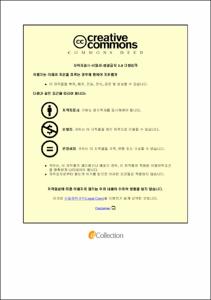교육목적 보드게임 활동이 초등학생의 자기효능감 및 자기조절능력에 미치는 영향
- Abstract
- The purpose of this study is to investigate the effect of educational purpose board game activities on the improvement of self-efficacy and self-regulation on elementary school students, and to suggest a board game program to improve self-efficacy and self-regulation.
The purpose of this study is to examine the theories of self-efficacy, self-regulation and educational purpose board game.
A. Do educational purpose board game activities affect the improvement of elementary school students' self-efficacy?
B, Do educational purpose board game activities affect the improvement of elementary school students' self-regulation?
The subjects of this study were 17 students from 3rd to 6th graders who participated in the after-school board game program of two elementary schools in Busan. As a experimental tool, I played an educational purpose board game activities. In order to measure self-efficacy, I used a general self-efficacy questionnaire developed tools by Kim A-young(1996) modified by Cha Jeong Eun(1997), and modified and reinforced by Kim, Soon-young(2006) to suit better for the level of elementary school students was employed. In order to measure self-regulation, I used the self-regulation questionnaire developed by Hur Jung-Kyung(2004) based on the theoretical composition of Miller(2000). A board game program was administered to the experimental group, pre-test and post-test were applied before and after the program.
To verify the effectiveness of the program, t-test and covariance analysis were performed.
The results of this study are summarized as follows.
First, the effect of educational purpose board game activities on elementary school students' self-efficacy was significant in all of self-efficacy, self-control efficacy, and task difficulty preference.
Second, the effect of educational purpose board game activities on the self - control ability on elementary students showed a significant effect on total self - regulation. By sub-factors, synchronous factors showed significant results, and behavioral and cognitive factors average rose but not significant. However, since the total self-regulation has a significant effect, it can be said that the educational purpose board game activities help to improve self-regulation.
The result of this study shows that board game program is useful as a tool to improve self-efficacy and self-regulation.
- Issued Date
- 2017
- Awarded Date
- 2017. 8
- Type
- Dissertation
- Publisher
- 부경대학교
- Affiliation
- 부경대학교 교육대학원
- Department
- 교육대학원 교육행정전공
- Advisor
- 허균
- Table Of Contents
- Abstract iv
Ⅰ. 서론 1
1. 연구의 목적 및 필요성 1
2. 연구문제 4
3. 용어의 정리 5
Ⅱ. 이론적 배경 7
1. 교육목적 보드게임 7
2. 자기효능감 13
3. 자기조절능력 18
Ⅲ. 연구방법 23
1. 연구대상 23
2. 실험설계 24
3. 검사도구 25
4. 연구절차 및 자료처리 30
Ⅳ. 연구결과 32
1. 교육목적 보드게임 활동이 초등학생의 자기효능감에 미치는 영향 32
2. 교육목적 보드게임 활동이 초등학생의 자기조절능력에 미치는 영향 35
V. 논의 및 결론 39
1. 논의 39
2. 결론 및 제언 42
참고문헌 45
부록
· 자기효능감 검사지 50
· 자기조절능력 검사지 52
· 보드게임 프로그램 선행연구 55
· 보드게임 프로그램 회기별 지도안 62
국문초록 77
- Degree
- Master
- Files in This Item:
-
-
Download
 교육목적 보드게임 활동이 초등학생의 자기효능감 및 자기조절능력에 미치는 영향.pdf
기타 데이터 / 926.7 kB / Adobe PDF
교육목적 보드게임 활동이 초등학생의 자기효능감 및 자기조절능력에 미치는 영향.pdf
기타 데이터 / 926.7 kB / Adobe PDF
-
Items in Repository are protected by copyright, with all rights reserved, unless otherwise indicated.